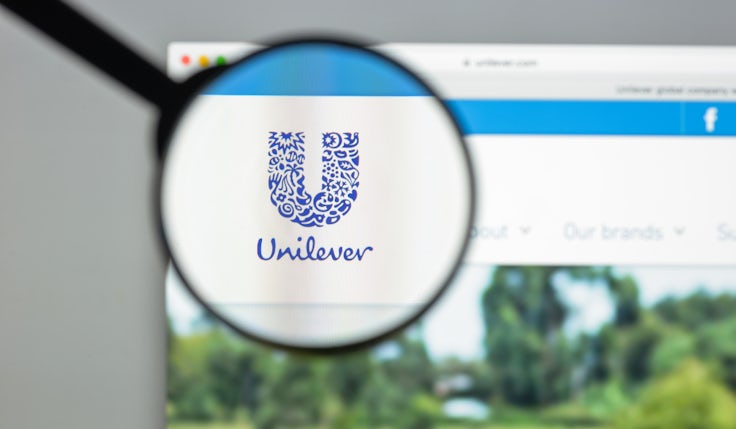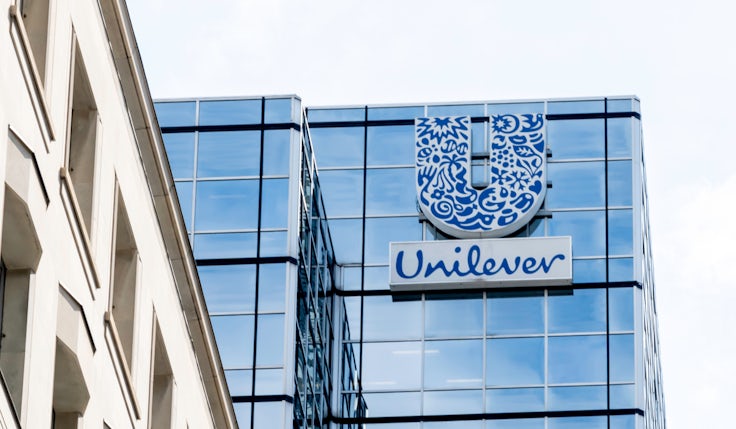Unilever highlights Ben & Jerry’s and Hellmann’s growth following brand purpose criticism
The FMCG giant will focus on driving long-term growth this year despite inflation, backed by “competitive” levels of marketing spend.
 Unilever has highlighted the superior growth of purpose-driven brands Ben & Jerry’s, Hellmann’s and Dove in its latest financial update, following accusations the business had “lost the plot” with its focus on brand purpose and sustainability.
Unilever has highlighted the superior growth of purpose-driven brands Ben & Jerry’s, Hellmann’s and Dove in its latest financial update, following accusations the business had “lost the plot” with its focus on brand purpose and sustainability.
Speaking to investors today (10 February), Unilever CEO Alan Jope said its 13 billion-euro brands grew an aggregate 6.4% in 2021. Of those, Dove experienced its fastest growth in eight years at 8%, while Jope called out Hellmann’s 11% growth and Ben & Jerry’s 9% growth as “key performances” within the group.
These growth rates are measured against “strong comparators”, Jope said, and are therefore not post-Covid bounce backs.
Building a “purpose-led, future-fit organisation and growth culture” remains a strategic priority for the business, he added.
Last month, fund manager Terry Smith, founder of major Unilever investor Fundsmith Equity Fund, branded Unilever’s focus on sustainability and brand purpose as “ludicrous”, claiming the strategy led to the FMCG giant’s underwhelming performance last year.
In his annual letter to investors in the fund, Smith took particular aim at Ben & Jerry’s refusal to sell its ice cream in Israel’s settlements in occupied Palestinian territory, as well as Unilever’s decision to define a brand purpose for Hellmann’s mayonnaise.
We will not dial back any investment to deliver a short-term margin.
Graeme Pitkethly, Unilever
“Unilever seems to be labouring under the weight of a management which is obsessed with publicly displaying sustainability credentials at the expense of focusing on the fundamentals of the business,” he wrote.
“A company which feels it has to define the purpose of Hellmann’s mayonnaise has in our view clearly lost the plot. The Hellmann’s brand has existed since 1913, so we would guess that by now consumers have figured out its purpose (spoiler alert — salads and sandwiches).”
Major Unilever investor says business has ‘lost the plot’ with brand purpose focus
Unilever also received considerable backlash from investors over its failed £50bn acquisition bid for GSK’s consumer healthcare arm, with Fundsmith labelling it a “near-death experience”. Fellow investor Bert Flossbach, founder of the German asset management firm Flossbach von Storch, was quoted by the Sunday Times as saying the business should focus on its “core competence”, as “mega acquisitions are often a sign of lack of creativity and regularly go wrong”.
Speaking today, Jope said Unilever had received a “strong message” that the proposed transaction was too big and at the “wrong time”, confirming that the business now does not intend to pursue any major acquisitions in the foreseeable future.
“We’ve drawn a line under the GSK consumer health discussions and we will not be doing any major acquisitions in the foreseeable future. We have a great portfolio of brands and categories and we’re 100% focused on driving stronger performance from our existing portfolio,” he said.
However, Jope added that Unilever remains “absolutely resolved” on moving its portfolio towards beauty, health and wellbeing in future, but is being “more patient” with the journey.
In its full-year report for 2021, Unilever claims to have seen the fastest underlying sales growth in nine years at 4.5%, with a 2.9% increase in price and 1.6% rise in volume since the previous year.
Turnover, or gross revenue, increased 3.4% to €52.4bn (£44.1bn). Underlying operating profit increased 2.9% to €9.6bn (£8.1bn), but underlying operating margin decreased by 10 basis points to 18.4%
Maintaining marketing despite inflation
The business’s investment in brand and marketing last year fell slightly, from around 14% as a percentage of turnover to around 13%. Spend across the beauty and personal care category and home care category was down, reflecting reductions in Europe and South East Asia where Covid-19 restrictions impacted market growth for the former, and elevated spend in 2020 behind hygiene products for the latter.
Marketing investment in food and refreshments increased, driven by India and China.
While lower than 2020, Unilever said its marketing investment remains at “competitive levels”, with approximately €7bn (£5.9bn) invested for each of the last three years. “We think that’s the right level to invest. We know we’re competitive with that,” CFO Graeme Pitkethly said.
The business plans to maintain these levels of marketing investment this year, despite rising cost pressures from inflation.Kimberly-Clark to support price rises with increased marketing spend
“We will not dial back any investment to deliver a short-term margin. And we plan to maintain competitive levels of investment in our brands, our marketing, in R&D [research and development] and in our capital expenditure,” Pitkethly said.
The company saw the equity of its brands increase last year, alongside strengthened “brand power”, and increased share of market, he added, which will be vital to support price increases this year. “There were many years when that was not the case. And we will not back off on competitive investment in our brands for the long term, so they can support the type of pricing we’re talking about.”
However, Pitkethly added that Unilever anticipates deflation in the market from a marketing investment perspective this year due to inflation’s impact on pricing. As such, though spend may remain competitive, it will likely be at a lower figure than previous years and a lower percentage of Unilever’s turnover.
Price strategy
Meanwhile, price rises will take place across Unilever’s portfolio this year as a response to inflation, the business confirmed. Pricing actions are already underway across Europe.
Prices increased 2.9% last year to meet the “dramatic” rise of input costs, accelerating to 4.9% in the fourth quarter.
Our brands are in very good shape, and our brand health is allowing us to lead on price.
Graeme Pitkethly, Unilever
The business is anticipating “very high” input cost inflation in the first half of 2022 of over €2bn (£1.7bn), which may moderate in the second half to around €1.5bn (£1.3bn).
Historically, Unilever has stepped up pricing where inflation has required, but often not to the extent so as to fully recover gross margin in any discrete year, Pitkethly explained. “Importantly, however, gross margin has been recovered quickly in the subsequent years.”P&G reports more effective marketing after upping digital spend
Unilever therefore plans to take a similar strategy this year, anticipating a short-term hit to profitability that will not be fully offset in 2022 alone. Instead, the business plans for the majority of margin to be restored in 2023.
“We won’t push pricing to a level where it compromises the long-term health of the business, but taking price is critical to our ability to carry on investing in our brands,” Pitkethly said.
He added the business is able to enact price increases because its brand equity and power is “very strong”, with some of its brands claiming brand power over 80%.
“Of course, we then mitigate with our savings and productivity programmes and leading on pricing and so far, our determination to lead on price is going well,” he continued.
“Our brands are in very good shape, and our brand health is allowing us to lead on price.”







